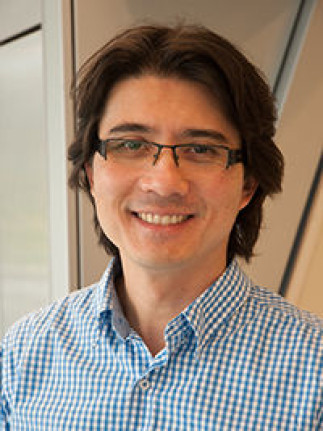Nanophotonic Device Technologies for Quantum Photonics
Marcelo Davanco
Research Scientist in the CNST Nanofabrication Research Group
National Institute of Standard and Technology (NIST)
Abstract: Nanophotonics can be employed to great effect for controlling light-matter interactions on a chip. This talk will focus on the development of nanophotonic geometries for on-chip, integrated deterministic single-photon sources, single-emitter cavity quantum electrodynamic systems, and quantum frequency conversion. We anticipate these integrated elements will enable a new class of highly efficient and versatile integrated nonlinear and quantum chip-based photonic devices.
Marcelo Davanço is a Research Scientist in the CNST Nanofabrication Research Group. He has B.S. and M.S. degrees in Electrical Engineering from the Universidade Estadual de Campinas (UNICAMP), Brazil, a Ph.D. in Electrical and Computer Engineering from the University of California, Santa Barbara, and was a Postdoctoral Research Fellow at the University of Michigan and then also at the CNST Nanofabrication Research Group. Marcelo has worked on a variety of topics related to the field of nanophotonics: InP-based photonic integrated circuits and photonic crystals, optical metamaterials, organic microcavities with strong exciton-photon coupling, hemispherical organic focal plane arrays, quantum-dot based single-photon sources, nonlinear integrated photonic devices, and nanophotonic cavity optomechanical systems. He is currently working with CNST researchers and external collaborators in developing measurement and fabrication techniques to advance the application of nanophotonics in sensing, imaging, and future electronics.
Cette conférence est présentée par le RQMP Versant Nord du Département de physique de l'Université de Montréal et de Génie physique de la Polytechnique.

